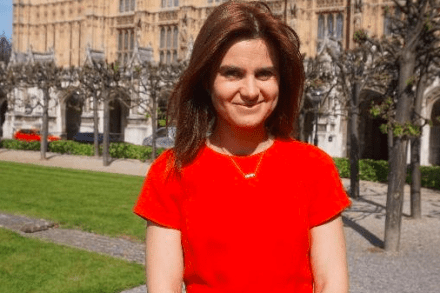Labour MP Jo Cox critically injured in shooting
Labour MP Jo Cox is in a critical condition after being injured during a shooting in her constituency. Eyewitnesses said the MP for Batley and Spen was attacked close to a library in Birstall, near Leeds, where she has previously held advice surgeries. A 52-year-old man has been arrested. Reports, that have not been confirmed, suggest the attacker shouted ‘Britain First’ shortly before the incident. West Yorkshire Police said they were aware of an ‘ongoing incident’. A police spokesman said: ‘At 12.53 today, police were called to a report of an incident on Market Street, Birstall, where a woman in her 40s has duffered serious injuries and is in a




















